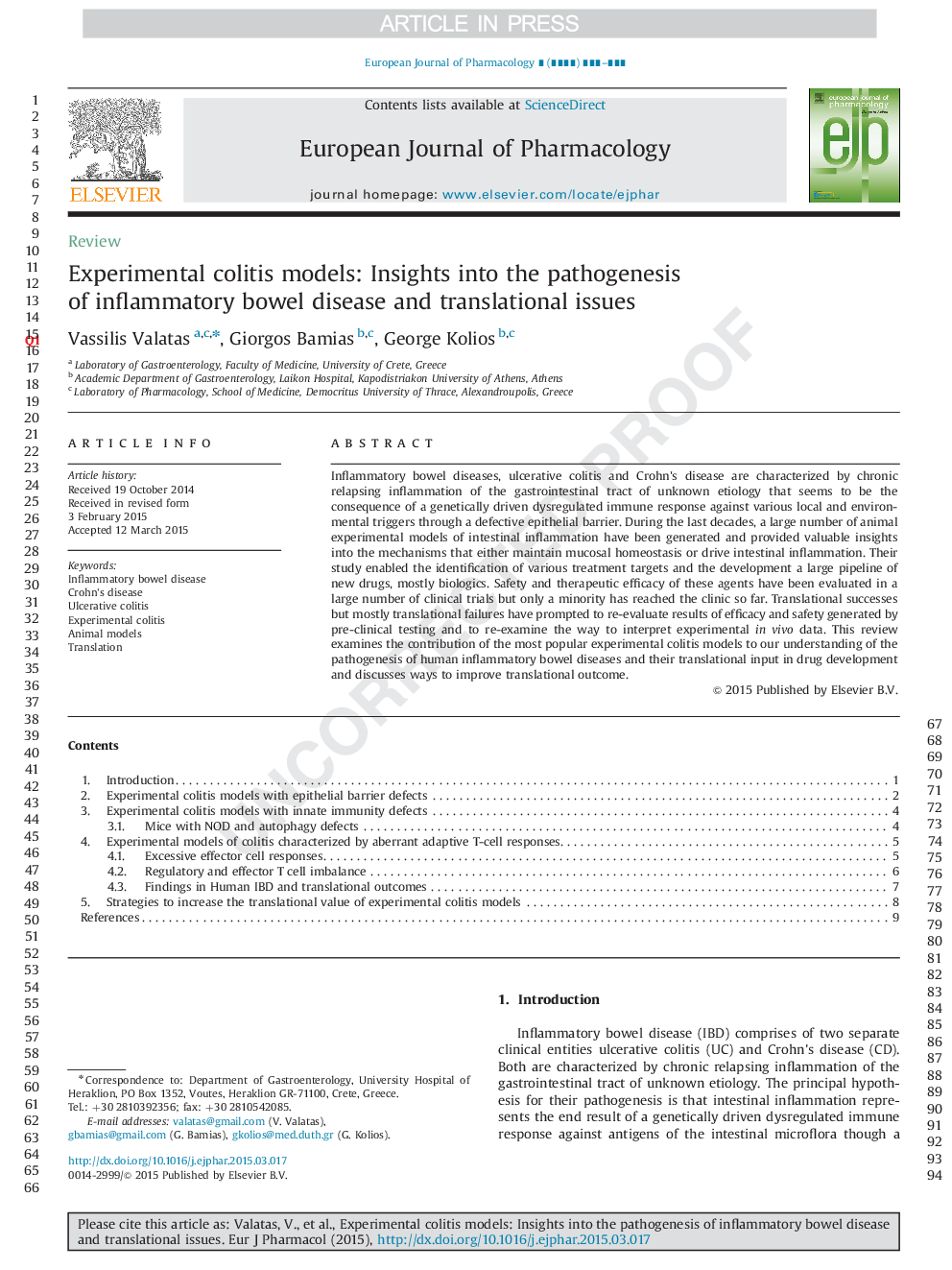| Article ID | Journal | Published Year | Pages | File Type |
|---|---|---|---|---|
| 5827316 | European Journal of Pharmacology | 2015 | 12 Pages |
Abstract
Inflammatory bowel diseases, ulcerative colitis and Crohn׳s disease are characterized by chronic relapsing inflammation of the gastrointestinal tract of unknown etiology that seems to be the consequence of a genetically driven dysregulated immune response against various local and environmental triggers through a defective epithelial barrier. During the last decades, a large number of animal experimental models of intestinal inflammation have been generated and provided valuable insights into the mechanisms that either maintain mucosal homeostasis or drive intestinal inflammation. Their study enabled the identification of various treatment targets and the development a large pipeline of new drugs, mostly biologics. Safety and therapeutic efficacy of these agents have been evaluated in a large number of clinical trials but only a minority has reached the clinic so far. Translational successes but mostly translational failures have prompted to re-evaluate results of efficacy and safety generated by pre-clinical testing and to re-examine the way to interpret experimental in vivo data. This review examines the contribution of the most popular experimental colitis models to our understanding of the pathogenesis of human inflammatory bowel diseases and their translational input in drug development and discusses ways to improve translational outcome.
Keywords
Related Topics
Life Sciences
Neuroscience
Cellular and Molecular Neuroscience
Authors
Vassilis Valatas, Giorgos Bamias, George Kolios,
